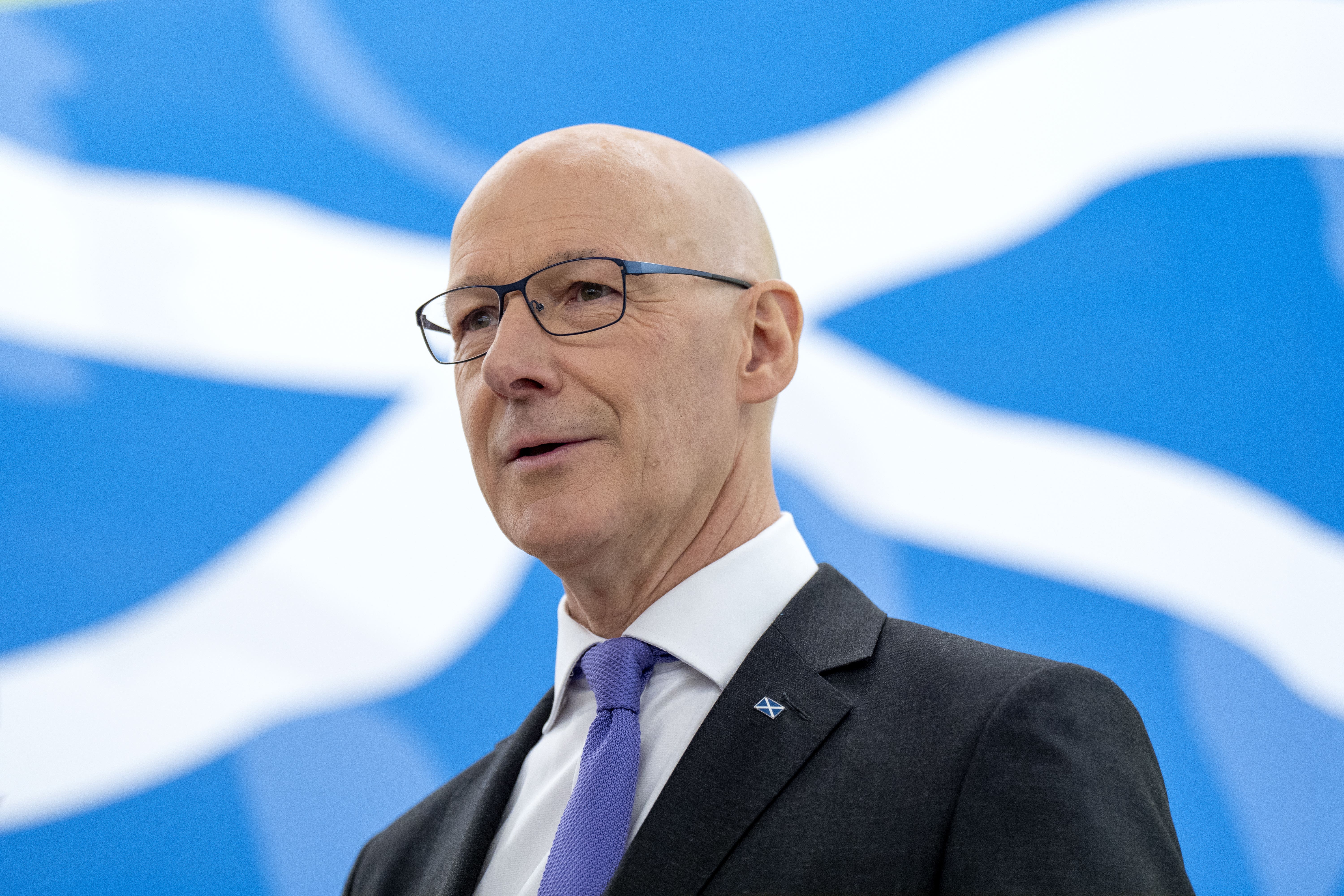Independence will make Scotland a ‘fairer, more equal country’ – Swinney
SNP leader John Swinney appeared on the BBC’s Question Time Leaders’ Special on Thursday.

Your support helps us to tell the story
From reproductive rights to climate change to Big Tech, The Independent is on the ground when the story is developing. Whether it's investigating the financials of Elon Musk's pro-Trump PAC or producing our latest documentary, 'The A Word', which shines a light on the American women fighting for reproductive rights, we know how important it is to parse out the facts from the messaging.
At such a critical moment in US history, we need reporters on the ground. Your donation allows us to keep sending journalists to speak to both sides of the story.
The Independent is trusted by Americans across the entire political spectrum. And unlike many other quality news outlets, we choose not to lock Americans out of our reporting and analysis with paywalls. We believe quality journalism should be available to everyone, paid for by those who can afford it.
Your support makes all the difference.SNP leader John Swinney has told a live TV audience that independence is necessary if Scotland is to become “a fairer, more equal country”.
Appearing on the BBC’s Question Time Leaders’ Special programme on Thursday, Scotland’s First Minister said that when he became party leader at a “difficult time” just over six weeks ago, he was tasked with rebuilding the trust of the Scottish people and with improving people’s lives.
He said the SNP is committed to eradicating child poverty and strengthening the economy, as well as pledging to “put in the resources” to address immediate problems like NHS waiting lists.
It was pointed out to him that Scotland had 7,000 people waiting for over two years, compared with just 300 in England, and he attributed this to the complex health conditions some people were experiencing.
I want Scotland to be like Denmark, or Ireland, or Sweden as an independent country. And when you look at those countries, they are more prosperous, they are more equal, they are fairer than Scotland in the United Kingdom
Mr Swinney also highlighted the importance of Scottish independence and of rejoining the EU to his party’s domestic agenda, and made his arguments for independence clear when asked whether he would settle for more devolved powers instead.
Mr Swinney said: “I’m never going to say no to more powers for the Scottish Parliament. But what I want to be able to do is to do the things that will transform people’s lives.
“I want to live in a fairer, more equal country. I want to live in a country that prioritises the improvement of our economy and strengthening the rights and the responsibilities of people in our country. I don’t think that can be achieved for us in the United Kingdom.
“I want Scotland to be like Denmark, or Ireland, or Sweden as an independent country. And when you look at those countries, they are more prosperous, they are more equal, they are fairer than Scotland and the United Kingdom.
“And that’s a prize I think people in Scotland are attracted to and want to make sure happens for our country.”
When one audience member asked him whether he would keep holding referenda “until you get what you want”, he said politicians should set out what they “actually believe in” and let people decide, and that he was a democrat who respected “the right of the people of Scotland to decide their own future”.
Fiona Bruce repeatedly challenged him on what it would mean for his democratic mandate for independence if the SNP failed to win a majority of Scottish seats in July given, she suggested, it would be a “democratic decision that you shouldn’t be pursuing independence”.
When he repeated that he wanted people in Scotland to confidently vote for the SNP so the party could turn its manifesto into reality, she voiced her conclusion that he was not going to answer the question.
He was also asked why the SNP had backtracked on its opposition to new oil and gas licences, and he said that while the need to transition to net zero was “absolutely inescapable” it would be necessary to use fossil fuels “for some time to come”.
He added that any new licences would be assessed on a case-by-case basis and would have to be “compatible with our objectives on climate change”, saying issues like energy security would form part of this consideration.